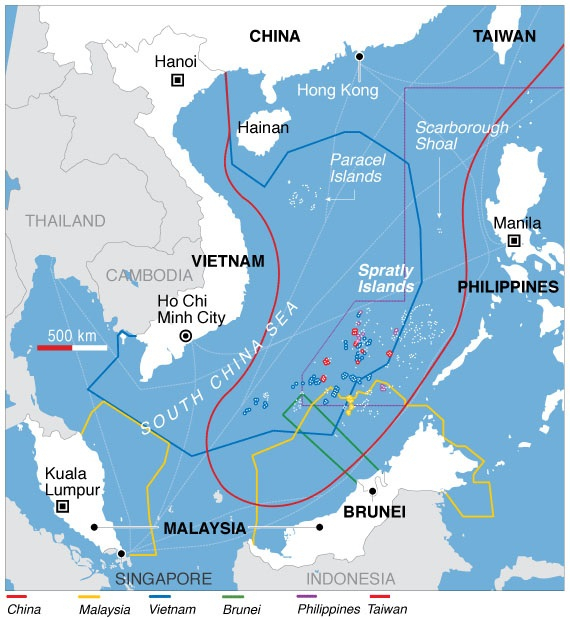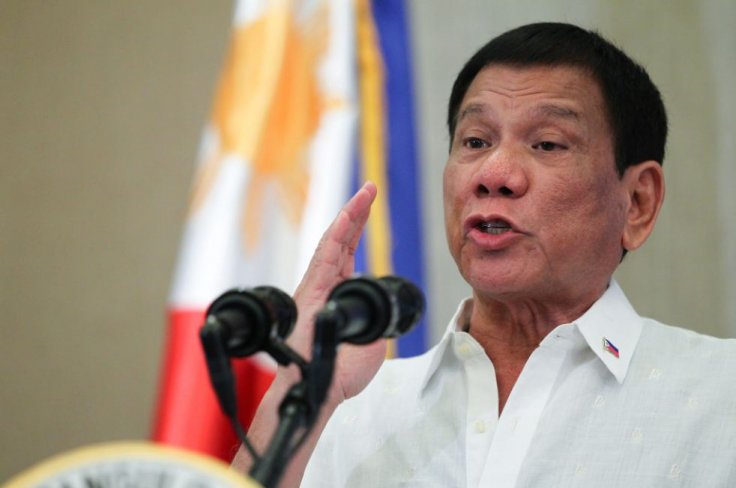Philippines President Rodrigo Duterte's dramatic speech at the United Nations just revealed how an eager Sinophile suddenly gravitated towards the United States. Ever since he took power in 2016, Duterte has been on the Chinese side. He wanted a separation from the US, threatened to kick out the US troops from the Philippines and went to meet Xi Jinping in Beijing where he told the Chinese that he felt safer in their embrace.
Now, the anti-American tirade has ended and Duterte is directing fire at Beijing. What made him change his stand? The world knows Duterte is a maverick, yet the display of tough anti-Beijing stance at the UN speech was telling. It was the same Duterte who said he wanted 50,000 US troops out of his country. "I want to be friends to China ... I do not need the arms. I do not want missiles established in my country. I do not need to have the airports to host the bombers," Duterte said some years ago.

"I want them out ... I may have ruffled the feelings of some but that is how it is. We will survive, without the assistance of America, maybe a lesser quality of life, but as I said, we will survive," he had said.
But in a major policy shift on Tuesday, Duterte condemned the Chinese efforts to undermine the 2016 UN arbitration that ruled against China's territorial claims in the South China Sea. Duterte hadn't endorsed the UN arbitration in his effort to cozy up with the Chinese. Now, he he said he would fight off China's efforts to undermine the ruling.
"We firmly reject attempts to undermine it ... We welcome the increasing number of states that have come in support of the award and what it stands for -- the triumph of reason over rashness, of law over disorder, of amity over ambition," he said.

Surprisingly, the praise of the UN came from the same man who had threatened to burn down the United States once. "You do not talk to me like that, you son of a bitch," the foul-mouthed president threatened UN High Commissioner for Human Rights, Zeid Ra'ad Al Hussein, in December 2016. The trash talk came after the UN rights chief asked for an investigation into the president's extra judicial killings.
Duterte's tough stance on Tuesday wasn't empty rhetoric. Hours after the President decidedly leaned towards the US at a crucial juncture in South China Sea tensions, his top diplomat said Philippines will seek the help of the US if China attacks its naval vessels. Philippine Foreign Secretary Teodoro Locsin Jnr said Philippines will invoke its defense agreement with the US if China attacks its navy in the South China Sea.
The Philippine offensive came at a time of increased tensions in the South China sea, after Beijing warned Manila over what it called "illegal provocations''. However, the fioreign secretary said Manila will go ahead with air patrols over the South China Sea, which Beijing calls illegal and provocative.
What Made Duterte Change Tack?
Some observers say Duterte was using the South China Sea flare-up as a useful distraction from domestic challenges. Some others were of the view that the change in strategy was genuine, influenced by the changed political scenario.
Foreign Secretary Locsin did shed some light into the background. He went as far as to say that Duterte's anger towards the US in 2016 was caused by the way the Barack Obama administration let Manila down over the issue of the strategic Scarborough shoal.
"He was alipin to the reality he inherited: a China already in possession of our reef thanks to [US President Barack] Obama giving it to China when our navy and the Chinese navy had a stand-off, and the US told both to stand down and leave ... We left, China stayed and reclaimed [Scarborough]," Locsin said.









